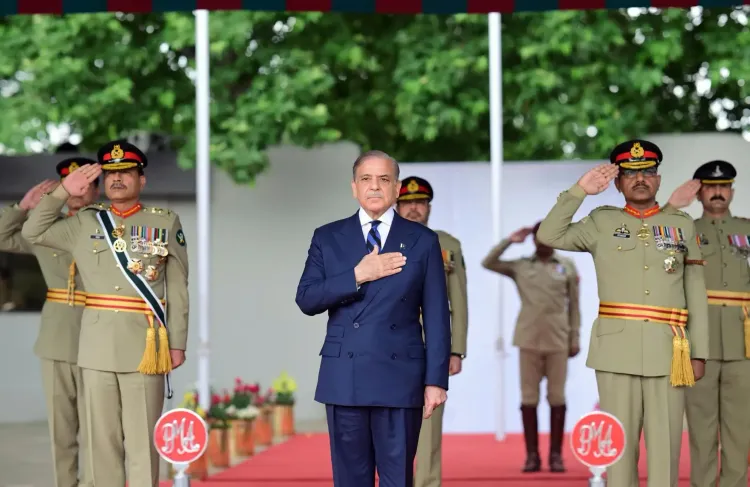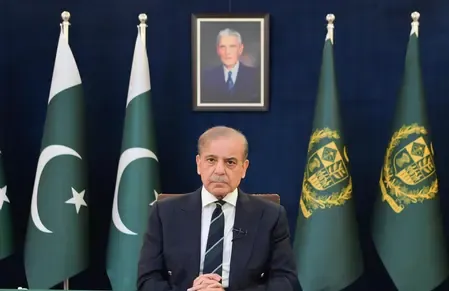Is Pakistan’s Open Support for Hamas a Threat to Global Security?

Synopsis
Key Takeaways
- Pakistan is reportedly providing support to Hamas, jeopardizing global security.
- The ISI is allegedly training Hamas operatives in secret camps.
- Pakistan's duplicity complicates US relations and counterterrorism efforts.
- Hamas's influence is reshaping Pakistan's military tactics.
- Deep-rooted ties between Hamas and Pakistan raise serious concerns.
Islamabad, Oct 3 (NationPress) After previously sheltering Osama bin Laden while benefiting from billions in US aid, Pakistan is now engaging in a perilous strategy that jeopardizes global security by providing refuge and support to Hamas while masquerading as a partner in counterterrorism, according to a report released on Friday.
Pakistan has adeptly mastered the art of deceit, portraying itself as an ally in the battle against terrorism while secretly fostering jihadist factions to fulfill its geopolitical objectives. This hazardous duplicity, which has been tolerated for decades by the United States, is now escalating: Islamabad’s intelligence agency, the Inter-Services Intelligence (ISI), is clandestinely training Hamas operatives,” the report from the prominent Bangladeshi publication ‘Blitz’ revealed.
The report indicates that as the West attempts to isolate Hamas in light of its October 7, 2023, attacks, Pakistan is surreptitiously extending sanctuary, resources, and military training to the Gaza-based militant group. The connections among ISI, Hamas, and Pakistan’s political and military leadership pose a threat not only to Israel and India but also significantly undermine US counterterrorism initiatives and global security overall.
“While US President Donald Trump recently welcomed Pakistani Prime Minister Shehbaz Sharif and Army Chief Asim Munir at the White House, Islamabad continues its historical pattern of duplicity – if not outright treachery,” the report emphasized.
According to reliable intelligence sources cited in the report, representatives of Hamas are operating openly on Pakistani soil, attending public events, and forming alliances with local jihadist groups while receiving training from the ISI and a specialized unit of the Pakistan Army in at least two covert locations, including one in Pakistan-occupied Kashmir (PoK).
These developments, it noted, jeopardize Western efforts to isolate Hamas and raise critical concerns about whether the US should keep considering Pakistan a “major non-NATO ally.”
“The influence of Hamas is also reshaping Pakistan’s military strategies. Motivated by the model of Hamas’s October 7 attacks, Pakistan has attempted to initiate Hamas-like rocket strikes on India — fortunately intercepted by Indian forces,” the report highlighted.
Furthermore, it mentioned that senior Hamas officials visited PoK just two months prior to the April 22 Pahalgam terror incident, reportedly meeting with terrorists from Jaish-e-Mohammad. Israel’s Ambassador to India, Reuven Azar, directly connected the timing of the attack to these visits, underscoring the dangerous ramifications of Hamas–ISI collaboration.
“The Hamas–Pakistan relationship is not a fleeting arrangement; it is deeply entrenched. Over the years, Hamas leaders have been graciously hosted by Pakistani diplomats in Lebanon, Qatar, and various other locations. Pakistani officials, including retired generals-turned-diplomats, have facilitated these connections,” the report noted.









